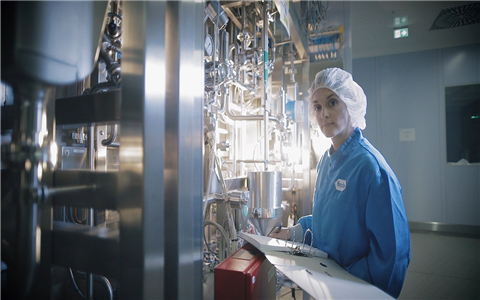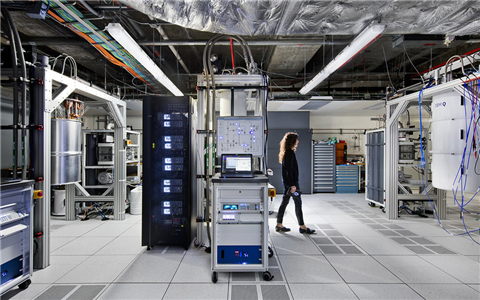
发布时间:2020-09-30
中国引进瑞士高校人才
导读
本文是根据瑞士时报(Le Temps)2020年9月9号发表的一篇文章编译整理。根据该报道,中国正在广泛从西方高校引进人才,其中瑞士已经有34名科学家被纳入了中国的国家人才计划。这篇文章从一个侧面反映出了瑞士在科研人才方面的国际领先水平,特别是瑞士的知名公立大学和研究院所,也成为了中国引进瑞士科研人才的重点目标。中国目前正在西方学术圈广纳贤士,其中,瑞士的34名科学家已被纳入中国国家人才计划。

200余个国家人才项目
国家人才计划是中国政府开设的200余个人才招募项目其中之一。澳大利亚战略政策研究所智库Alex Joske表示,在2008至2016年间,该项目为中国吸引了60,000名来自美国、英国、德国、澳大利亚等地的高校人才。同期,中国在瑞士高校招募到了34名科学家。根据名单显示,瑞士的两所联邦理工学院、日内瓦大学、苏黎世大学、巴塞尔大学、伯尔尼大学以及瑞士保罗谢尔研究所、瑞士联邦材料测试与研究实验室均向中国国家人才计划输送了科学家。

其中之一是在苏黎世大学工作了近12年的化学家Jay Siegel,他在参与瑞士科学院资助的交换项目时有机会到访中国,后于2013年被天津大学聘用,成为制药工程系主任。他说,“这个机会非常难得,能让我在中国的大学里建立西方研究体系。”根据荷兰驻上海领事馆科技专员David Bekkers的研究报告显示,纳入国家人才计划的科学家可以领取高达100万元的月薪,以及500万元的科研补贴。此外,还可得到日常生活支出、住宿费用以及运营实验室的费用,年收入总共可高达1500万人民币。
人才的招募主要是通过欧洲大学附近的一些组织机构。Alex Joske列出了600多个,其中7个位于瑞士,包括浙江省的一家附属机构、中国科学技术协会当地分部以及中国学生学者联谊会日内瓦分会(CSSA)等。Alex Joske表示“这些机构与中国签署了每年150,000元的协议帮助招募全球科学家,每位科学家可返佣机构200,000 元。这些机构的任务就是发掘有潜力的科学学术专家,邀请他们参与使馆活动,安排参观中国的大学。”

为何要大费周章呢?香港科技大学的David Zweig表示,中国的目标是“填补科技空缺”。这也说明了为何国家人才计划的科学家往往是中国希望赶超西方的领域,比如人工智能、生物科技、核聚变、半导体等领域。目前在中国大学工作的瑞士高校人才有4名,除前文提到的化学家Jay Siegel外,还有一名来自巴塞尔大学的神经学家加入了专攻电子防御系统的成都电子科技大学,一名来自日内瓦大学的量子电子领域专家,加入了国内武器研究的顶级学府南京科技大学,以及一名来自EPFL附属研究所光伏领域的专家,加入了北京航空航天大学。
Original English Texts
Beijing is recruiting at Swiss universities
China is recruiting at all costs in Western academic circles. In Switzerland, it has poached 34 scientists under the Thousand Talents programme.
200 programmes
Thousand Talents is just one of 200 recruitment programmes set up by the Chinese government. Between 2008 and 2016, it has helped to attract 60,000 talents to China, mostly from universities in the USA, UK, Germany and Australia, says Alex Joske, who has just written a report on the subject for the Australian Strategy Policy Institute think tank. During this period, according to him, Beijing recruited 34 scientists from Switzerland.
The two Federal Institutes of Technology, the Universities of Geneva, Zurich, Basel and Bern, as well as the Paul Scherrer Institute and the Swiss Federal Laboratories for Materials Testing and Research all provided scientists to the Thousand Talents programme, according to the lists of participants.
One of them, chemist Jay Siegel, who worked at the University of Zurich for almost 12 years, was recruited in 2013 by the University of Tianjin after visiting China as part of an exchange funded by the Swiss Academy of Sciences. He became the dean of the school of pharmaceuticals and engineering. "This transfer gave me the unique opportunity to create a Western-style department within a Chinese university," he says. Scientists recruited by Thousand Talents receive a monthly salary of up to 1 million yuan (132,600 francs), as well as a research grant of 5 million yuan (663,000 francs). In addition to this, there are daily living expenses, paid accommodation and often the cost of obtaining one's own laboratory. In total, they can receive up to 15 million yuan (2 million francs) a year, according to a research paper by David Bekkers, scientific attaché at the Dutch consulate in Shanghai.
Recruitment takes place through associations located close to western universities. Alex Joske listed 600 of them, 7 of which are in Switzerland. These include an affiliate of the Zhejiang province, a local branch of the China Association for Science and Technology and the Geneva branch of the Chinese Students and Scholars Association (CSSA).
"These bodies are under contract with the Chinese state, which pays them 150,000 yuan a year (20,000 francs) and sets targets for the recruitment of scientists," says Alex Joske. When they manage to catch one of them, they get a commission of 200,000 yuan (2,500 francs), he says. Their job is to identify promising academics, invite them to events with embassy representatives and arrange trips for them to tour Chinese universities. But why put so much effort into it? Beijing's goal is to "fill the gaps in its scientific knowledge" says David Zweig of Hong Kong University of Science and Technology, who has studied these programmes. This explains why the participants are specialised in areas where China wants to outperform its Western peers, such as artificial intelligence, biotechnology, nuclear fusion or semiconductors.
In Switzerland, there are four such recruits. A neuroscientist from the University of Basel has joined the University of Electronic Science and Technology in Chengdu, an institution specialising in electronic defence systems. An expert in quantum electronics from the University of Geneva has joined the Nanjing University of Science and Technology, which dominates weapons research in China. And a researcher affiliated to an institute specialising in photovoltaics at the EPFL is now working for the Beijing University of Aeronautics and Astronautics.
本文由雷梭勒家族办公室依据公开资料翻译整理,部分图片素材来自网络,版权归原作者,如有侵权,敬请告知删除。
Sooswiss为您提供
瑞士方向私人管家式的定制服务:
1)家族传承 2)财富管理 3)瑞士投资
4)居留计划 5)税务优化 6)家族治理
更多资讯请登录网站 www.sooswiss.com
